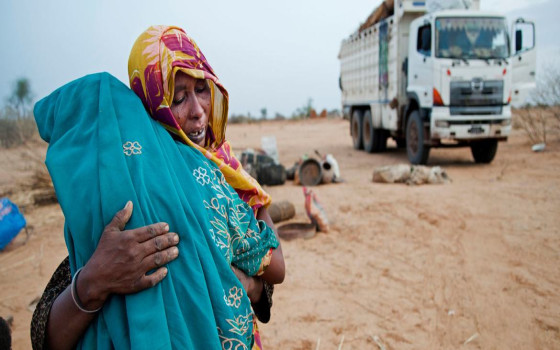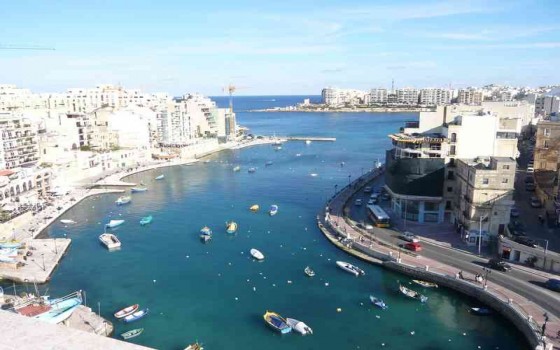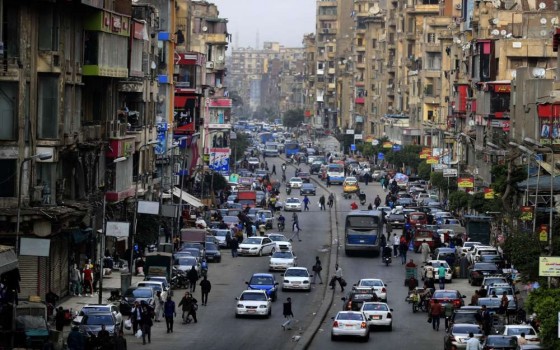
The United Nations warns: The humanitarian situation in Sudan is still a disaster and the conditions are getting worse day by day ..A UN official: Khartoum, which was once the beating heart of the country, is now in ruins

- Europe and Arabs
- Wednesday , 7 August 2024 7:7 AM GMT
Khartoum - New York: Europe and the Arabs
Two UN officials warned that the humanitarian situation in Sudan "remains an absolute catastrophe" and that conditions across the country are "horrific and getting worse by the day." According to the UN daily news bulletin, a copy of which we received this morning, Wednesday,
which added, "This came in a session held by the UN Security Council yesterday, Tuesday, to discuss the situation in Sudan, where it heard two briefings from the Director of Operations and Advocacy at the United Nations Office for the Coordination of Humanitarian Affairs, Edem Wosorno, and the Assistant Executive Director of the World Food Program, Stephen Omollo.
Wosorno said that 26 million people in Sudan are suffering from acute hunger, "which is equivalent to three times the size of New York City, (but) full of hungry families and malnourished children."
She pointed out that people continue to flee, as 10 million people have been forced to flee their homes due to violence, hunger and deprivation, adding that this includes 726,000 people who have been displaced inside and outside Sennar State, southeast of the country, since 25 June after the Rapid Support Forces advanced into the state, “which means three-quarters of a million people have been displaced in just six weeks.”
“Khartoum, the capital of Sudan, which was once the beating heart of the country, is now in ruins,” said the UN official.
The Director of Operations and Advocacy at the UN Office for the Coordination of Humanitarian Affairs confirmed that life-saving supplies in Port Sudan were ready to be loaded and sent to Zamzam camp, including essential medicines, food supplies, water purification tablets and soap.
She added that relief supplies for the Zamzam population were readily available in eastern Chad, but heavy rains had flooded the Tina crossing, the only border crossing currently allowed for humanitarian agencies to use between eastern Chad and Darfur after the Sudanese authorities revoked permission to use the Adre crossing in February.
She added: “As a result, we are simply unable to move the large amount of supplies required to save lives and fight famine.” Wesorno reiterated four key demands:
First, the cessation of the conflict;
Second, the need for the parties to abide by their obligations under international humanitarian law;
Third, the need for rapid, safe and unhindered humanitarian access across Sudan, by all possible routes;
Finally, the provision of more resources.
She warned that “if we do not receive adequate funding for the assistance operation, including flexible funding that can enable local partners to work better, the response will stall.”
“The people of Sudan desperately need and deserve more than our words. They need this Council, they need all Member States, they need the wider international community, to act, to pull Sudan out of this abyss,” Wesorno concluded her briefing.
WFP Assistant Executive Director Stephen Omollo warned in his briefing to the Council that “this humanitarian crisis has not received the political and diplomatic attention it so desperately needs. Yet it has wider implications and threatens to destabilize the wider region.”
He stressed that the confirmation of the famine should serve as a wake-up call to the international community and to the members of the Security Council. He pointed out that all parties to the conflict are failing to meet their obligations and commitments under international humanitarian law, adding that “the humanitarian space is shrinking all the time.” He said that both parties to the conflict routinely obstruct requests for approvals to move across conflict lines, severely limiting the amount of aid that gets through, “and preventing us from working at scale.” The UN official concluded his briefing by saying: “Stopping the ongoing famine requires political will and leadership. WFP calls on the Security Council to provide it. The people of Sudan, exhausted by war and broken by hunger, deserve nothing less. We must not let them down.”












No Comments Found